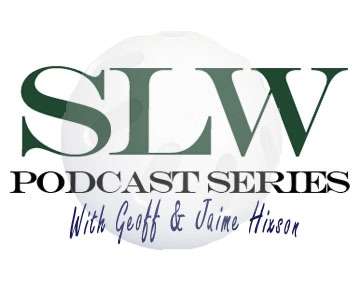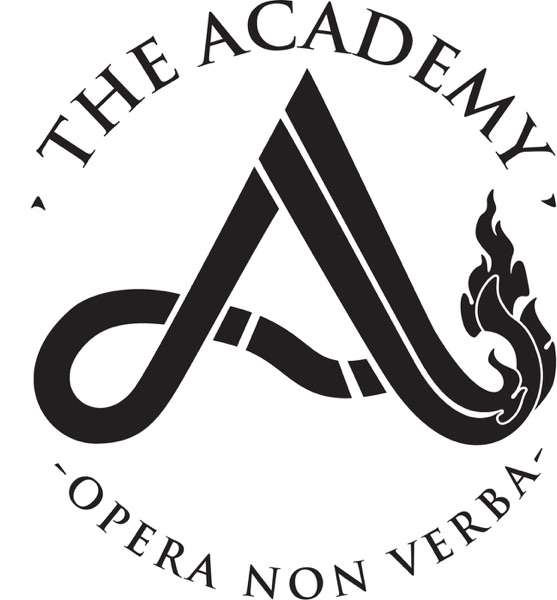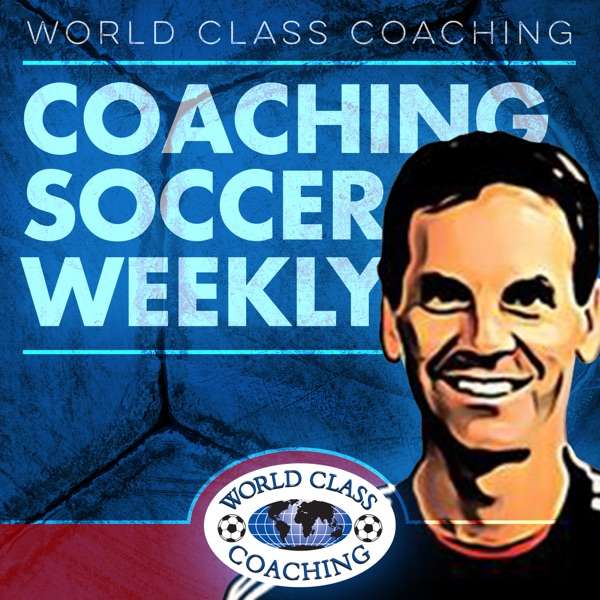Today’s episode features performance coach, author, and speaker, Brett Bartholomew. Brett is the founder of “Art of Coaching™”, which works with corporations in the financial and tech sector, medical professionals, military, as well as professional sporting organizations to enhance their leadership ability through improved communication and understanding of human behavior. Brett is the author of the best-selling book “Conscious Coaching”, and has spoken worldwide on performance and communication topics. Brett has served as a performance coach for a diverse range of athletes, ranging from youth to Olympians, those in nearly every professional sport, as well as those in the U.S. Special Forces and Fortune 500 companies.
Coaching is a rapidly evolving field. Strength coaches must grow in a multi-disciplinary manner on a variety of levels to stay competitive and serve athletes better. Sport skill coaches cannot simply use the same rigid cues and drill sets and methods that their coach used on them. Rather, a thorough understanding of human learning and psychology, a more holistic model must be found to facilitate the optimal technical and tactical development of the athlete.
Brett Bartholomew has evolved greatly in his time as a coach, and his diverse coaching background has given him the means to see a large problem in the field: A lack of education, skills, and emphasis in general on communication and understanding of human behavior. Being a better communicator means acquiring better buy-in, more effort, and more enjoyment on the part of those we are coaching, and there are a lot of means by which we can improve in this arena as coaches. On today’s show, Brett talks about why communication has been under-emphasized in coaching (despite its importance) how improving in this area can improve athlete outputs, as well as practices and exercises that coaches can utilize to improve their own leadership and communication abilities.
Today’s episode is brought to you by SimpliFaster, supplier of high-end athletic development tools, such as the Freelap timing system, kBox, Sprint 1080, and more.
View more podcast episodes at the podcast homepage.
Timestamps and Main Points
3:30 Key moments in Brett’s evolution as a coach, and his drive towards an emphasis on communication in learning
11:45 Why communication is under-emphasized in most coach education programs, and why coaches are often blind to their own coaching communication abilities
20:40 Concrete outcomes of better communication on the level of the coach and athlete
26:10 How improving one’s communication can help one’s evolution as a coach and leader
38:00 Impression management in life, as well as in the coaching profession
44:10 Types of activities that can make a coach better in a chaotic environment
“Most leaders at companies at high level organizations are making decisions with less than 70% of the information that they need”
“Athletes are people first… you have to show varying levels of yourself, building buy in requires you to get on the level of other people”
“Why do we think we are so good at communication when so few people get evaluated (in communication)”
“We think that just because we value getting information a certain way, that other people value that way as well”
“When the foundation of coaching is communicating with others, and knowing how to translate literally and metaphorically what you mean to broader audience, and you can’t do that, something has gone wrong”
“You need to be able to tune your message into different frequencies”
“If you are a better communicator, you are going to get more out of people”
“Success with high performance environments is not just about managing an athlete’s training, it’s about managing the athlete themselves, and their environment”
“There’s 5-6 forms of various impression management tactics people use, and once you know them, you can’t help but see them everywhere. It’s not about are they right or wrong, it’s are they managed skillfully and ethically”
“Coaching and communication and leadership is a non-linear thing… the only way to fight chaos is to become more adapted to chaos”
“If you don’t put skin in the game, I don’t know that you are going to improve”
About Brett Bartholomew
Brett Bartholomew is a performance coach, author and keynote speaker.
His company, Art of Coaching™ works with corporations in the financial and tech sector, medical professionals, military, as well as professional sporting organizations to enhance their ability to lead more effectively through a better understanding of human behavior, persuasion, and power dynamics.
His book Conscious Coaching: The Art & Science of Building Buy-In, was named,
The #1 BESTSELLER IN SPORTS COACHING ON AMAZON
The #8 BESTSELLER IN BUSINESS & LEADERSHIP AMAZON
TOP 100 BESTSELLER ON AMAZON
Prior to his work in the leadership space, Brett served as a performance coach for a diverse range of athletes across 23 sports worldwide including those who compete in the NFL, NBA, MLB, UFC, MLS, and NCAA, the Olympics as well as members of the U.S. Special Forces and Fortune 500 companies.
Transcripts
Joel Smith: On this show, we're always trying to find, or grab those low hanging fruits of athletic performance, whether it be training the mind, nutrition, stress, and lifestyle perception, reaction, finer points of speed biomechanics, and really anything that exists that I feel is really underrepresented in the way that we seek to give athletes their best experience I'm always looking for. When it comes to coaching, Brett Bartholomew is addressing a very significant, low hanging fruit, and that is of understanding human behavior and communicating properly with one's team, athletes, whoever you're working with in coaching. That's something that doesn't just reside in the coaching field, but is universal. And it shows in Brett's work. Brett is the founder of the Art of Coaching, where he works with many corporations, such as finance, tech, medical professionals, military, as well as sport and athletic coaches. Brett is the author of the bestselling book, Conscious Coaching.
Joel Smith: He spoken worldwide on performance and communication topics. And of course, Brett has put his years in, in the trenches coaching, having worked with a diverse range of athletes from youth to Olympians to those in nearly every professional sport, as well as those in U.S. Special Forces and fortune 500 companies. Coaching is really a rapidly evolving field, especially sports performance is so multidisciplinary. I think there's so many things that we can put in our own tool belt in our layers of awareness to just be better at what we do to serve athletes better, to give them the best in training techniques, but also the best experience, the best buy-in the best relationship with us as coaches. And so with that, our show with Brett has some really relevant topics lined up. He's going to talk about some key moments in his evolution as a coach and key moments where he really saw communication has a really important part or piece in the coaches arsenal.
Joel Smith: He's going to talk about why communication is underemphasized, concrete outcomes of improving one's communication and knowledge of human behavior, and finally, some practical activities and ideas that can help coaches get a better sense of themselves, better awareness and improve the way that they speak and interact with their athletes on a regular basis. I'm excited to get you guys this episode, so let's get onto it. Episode 217 with Brett Bartholomew. Brett man, it's awesome to have you on the show. Thanks for being here today.
Brett Bartholomew : Hey, great to be on here. Thanks for having me.
Joel Smith: So I know that you've talked about this multiple probably podcasts in the past and many times on your own, but we have a kind of a multidisciplinary field in strength and conditioning and it, and it needs to evolve. And in some ways I think of things as becoming your own superhero, you know, what skills are you putting onto yourself and how are you evolving over time to serve athletes better? And so my question for you is, what are some skills at critical moments and skills that you've formed yourself as a coach over the years?
Brett Bartholomew : Yeah. I think the ability to adapt a lot more effectively and efficiently by putting myself in dense and diverse environments, you know, there were a lot of times where it's one thing to coach athletes in a environment where you have all the tech, all the toys, all the tools you need. It's another thing when all of a sudden, you know, I was on a plane having to teach in a country where nobody spoke English, or all of a sudden I'm running a workshop somewhere else and you don't have half the things you were supposed to have. The logistics don't go well, and you've just got to figure it out. And I think that that's something that really is not great for emergent leaders or coaches, whatever term you want to define when they're so focused on controlling the environment. And so focused on trying to have everything locked and loaded that they don't know how to improvise. You know, research shows, Joel, like most leaders today, especially at high level companies and organizations, which coaches need to view themselves as, and in their own way, basically are making decisions with less than 70% of the information they need. And so I just think the willingness to be able to adapt, to adopt new strategies, to focus on communication, psychology, getting everybody on the same page so that we can have, you know, a longer term commitment, higher level commitment and better outputs has been the most critical thing.
Joel Smith: Yeah. As I know, as you've with just coaching in general, you've been to a lot of places,

 Our TOPPODCAST Picks
Our TOPPODCAST Picks  Stay Connected
Stay Connected







